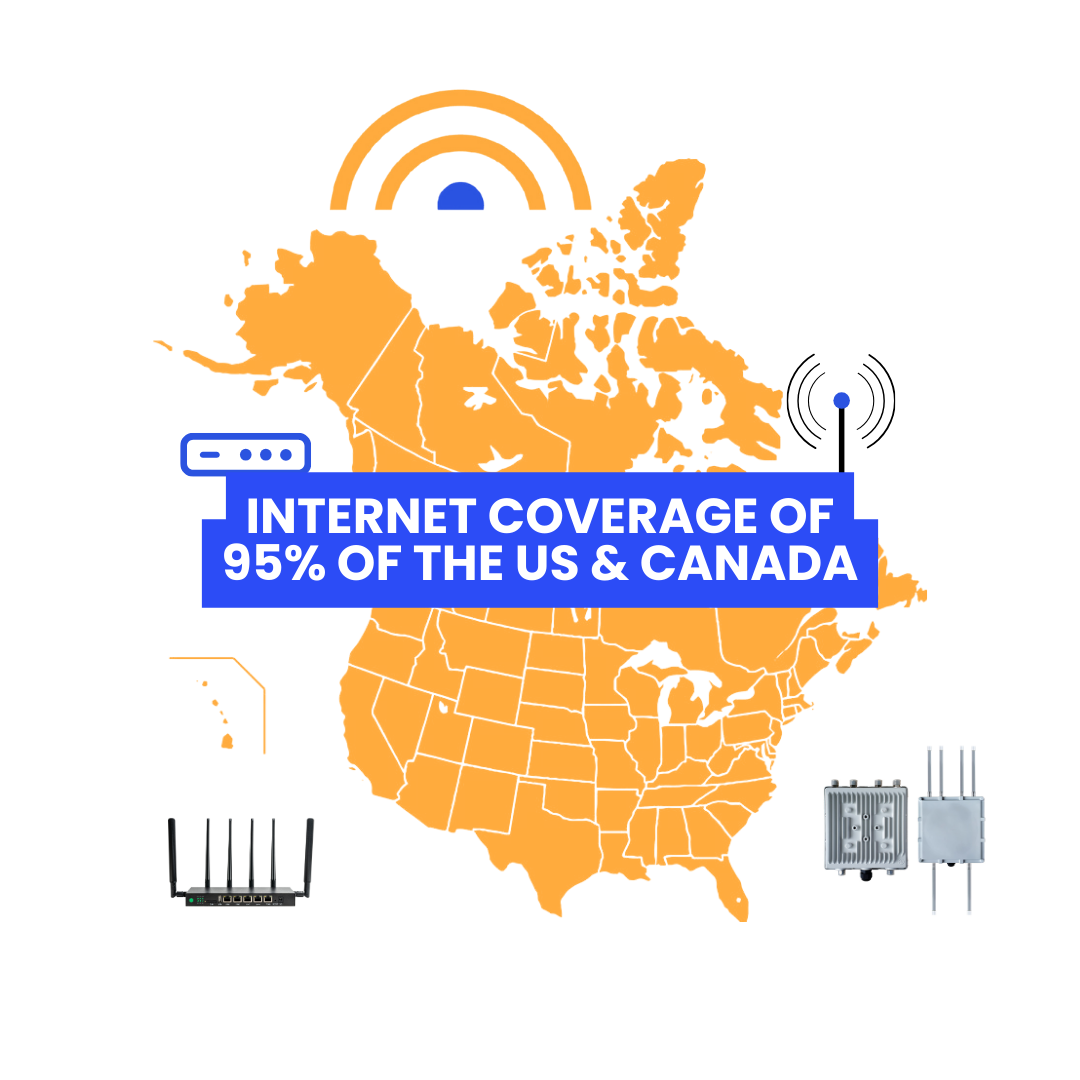How Technology Works: Why You're Safer Than You Think From AI—At Least for Now

Artificial Intelligence (AI) has been a buzzword for years, often accompanied by fears of job loss, privacy invasion, and even dystopian futures where machines surpass human intelligence. Movies and headlines have painted a picture of AI as an imminent threat, ready to outsmart, outmaneuver, and even outdo humanity in every possible way. But how real are these concerns? Are we truly on the brink of being overtaken by our own creations?
The answer is more reassuring than you might think. While AI is indeed powerful and evolving rapidly, the reality of its current capabilities—and limitations—suggests that we’re safer from AI than many people believe. Here's why.
Understanding AI: What It Is and What It Isn’t
Before diving into why you're safer than you think, it’s important to understand what AI actually is. AI, in its most basic form, is a branch of computer science that aims to create machines capable of mimicking human intelligence. This can include learning from experience (machine learning), understanding natural language, recognizing patterns, and even making decisions.
However, the AI we interact with today—known as "narrow AI"—is highly specialized and designed for specific tasks. For example, your smartphone’s voice assistant can understand and respond to voice commands, but it can't cook dinner, fix your car, or compose a symphony. Narrow AI is efficient at particular functions, but it lacks the generalized intelligence that would be necessary to pose a true threat.
The Limitations of AI: Why It's Not Taking Over Anytime Soon
-
Lack of General Intelligence: Current AI systems excel in narrowly defined areas. They can beat humans at chess, recommend the next Netflix show, or recognize faces in photos, but they cannot transfer these skills across different domains. This means that while AI might outshine humans in specific tasks, it’s far from being capable of understanding the world in a holistic way.
-
Dependence on Data: AI systems learn from data, and the quality of their output is directly tied to the quality of the input data. Garbage in, garbage out. If AI is trained on biased or incomplete data, its decisions and predictions will reflect those flaws. Moreover, AI struggles with tasks that require common sense, creativity, or a deep understanding of context, which humans excel at.
-
Ethical and Regulatory Barriers: As AI continues to develop, ethical considerations and regulations are being put in place to prevent misuse. Governments and organizations are working to ensure that AI systems are developed and deployed responsibly. These measures are critical in preventing the kinds of scenarios that science fiction often warns us about.
-
High Costs and Technical Challenges: Developing advanced AI systems requires significant resources, including specialized hardware, vast amounts of data, and expert knowledge. The technical challenges involved in creating truly autonomous AI that can operate across multiple domains are immense. We’re likely decades away from achieving anything resembling general AI.
The Human Element: Why People Still Matter
One of the most reassuring aspects of AI is the continued necessity of human involvement. AI systems are designed, built, and maintained by humans. They require human oversight to ensure they function correctly and ethically. Moreover, AI lacks the emotional intelligence, creativity, and ethical judgment that humans bring to decision-making processes.
Consider the role of AI in healthcare. AI can assist doctors by analyzing medical images or predicting patient outcomes based on data. However, the final diagnosis and treatment plan are still determined by a human doctor, who considers not just the data but also the patient's personal history, emotional state, and preferences.
The Future of AI: A Tool, Not a Threat
While it’s essential to remain cautious and informed about the development of AI, it’s equally important to recognize its current role as a tool rather than a threat. AI is helping us solve complex problems, improve efficiency, and unlock new possibilities in various fields, from medicine to climate science.
The potential of AI to improve our lives is vast, but it’s crucial to maintain a balanced perspective. The scenarios where AI becomes an uncontrollable force are far from reality. Instead, we should focus on harnessing the power of AI to address real-world challenges while ensuring ethical practices guide its development.
How to Use AI to Boost Your RV Lifestyle
Artificial intelligence (AI) has seamlessly woven itself into our daily routines, shaping the way we search for information, interact with devices, and even plan our travels. For RV enthusiasts, AI isn't just a high-tech concept—it's a game-changer that can elevate the entire RV experience. Whether you're a full-time RVer or a weekend road tripper, here’s how AI can enhance your lifestyle on the road.
AI for Smarter Travel Planning
-
Personalized Route Recommendations: Gone are the days of relying solely on GPS and maps. AI algorithms can now analyze your travel preferences, real-time weather conditions, and traffic patterns to suggest the most efficient and enjoyable routes for your RV adventures. Whether you prefer scenic byways or the fastest path to your destination, AI can tailor the journey to your liking.
-
Predictive Maintenance: One of the biggest worries for RV owners is unexpected breakdowns. AI can help mitigate this by continuously monitoring your RV’s systems. It can predict potential issues—such as engine troubles or tire wear—allowing you to schedule maintenance before minor problems turn into costly repairs. This proactive approach not only saves money but also keeps your trip running smoothly.
-
Finding the Best Campsites: The perfect campsite can make or break your RV experience. AI-powered platforms can sift through thousands of campsite reviews, availability data, and amenity lists to find the ideal spot that meets your needs. Whether you’re looking for a quiet, wooded area or a site with full hookups and nearby attractions, AI helps ensure you find your perfect home on the road.
AI for Enhancing the RV Experience
-
Virtual Assistants: Voice-controlled assistants like Siri, Google Assistant, or Alexa are more than just novelties—they can be your co-pilot. These AI tools can help you control RV systems, play your favorite music, set reminders, and answer questions—all while you focus on driving or relaxing by the campfire.
-
Smart Home Integration: Transform your RV into a smart home on wheels. By integrating AI with your RV’s appliances and systems, you can remotely control lights, heating, cooling, and security. Imagine adjusting the temperature from your phone while you’re out exploring or setting up a cozy atmosphere before you return. AI enhances convenience and energy efficiency, making your RV as comfortable as possible.
-
Entertainment Recommendations: Downtime in your RV is precious, and AI can help you make the most of it. AI-powered streaming services like Netflix or Spotify can suggest movies, TV shows, and music based on your preferences. Whether you’re in the mood for a relaxing movie night or a road trip playlist, AI ensures you’re entertained without the hassle of searching for something to watch or listen to.
AI for Financial Management
-
Budgeting Tools: The RV lifestyle can be unpredictable, but your finances don’t have to be. AI-powered budgeting apps analyze your spending habits, helping you track expenses and create a realistic budget. Whether you’re managing campground fees, fuel costs, or dining out, AI keeps you on top of your finances, allowing you to enjoy the journey without financial stress.
-
Investment Advice: While AI can’t replace a financial advisor, it can offer valuable insights and recommendations for your investments. AI-powered tools analyze market trends and personal risk profiles to suggest potential investment opportunities, helping you make informed decisions to secure your financial future.
AI for Safety and Security
-
Emergency Alerts: AI-powered weather apps provide real-time alerts for severe weather conditions, giving you the time to find shelter or adjust your plans to stay safe. Whether it's a sudden storm or extreme heat, AI helps you navigate the challenges of weather on the road.
-
Vehicle Safety: Advanced driver assistance systems (ADAS) utilize AI to enhance safety features in your RV. These systems can help prevent accidents by providing alerts for lane departures, forward collisions, and even automating emergency braking. AI acts as an extra set of eyes on the road, making your travels safer.
-
Security Cameras: AI-powered security cameras monitor your RV and surrounding area, detecting suspicious activity and alerting you instantly. Whether you're parked at a campsite or exploring a new town, AI ensures that your RV and belongings are secure.
Ethical Considerations and Privacy Concerns
While AI offers numerous benefits, it's essential to be mindful of ethical considerations and privacy risks. Always prioritize data privacy and be cautious about sharing personal information. Understanding the terms of service and data policies of AI-powered tools can help you protect your privacy while enjoying the conveniences they offer.
Conclusion: You’re Safer Than You Think
The fears surrounding AI often stem from misunderstandings about its capabilities. While it’s true that AI is powerful and will continue to evolve, the technology is still far from the autonomous, all-knowing entities often portrayed in media. AI today is a tool designed to assist and augment human capabilities, not replace them.
For now, and for the foreseeable future, you’re safer from AI than you might think. Rather than fearing AI, we should focus on how to use it responsibly and effectively to improve our world.








Dejar un comentario